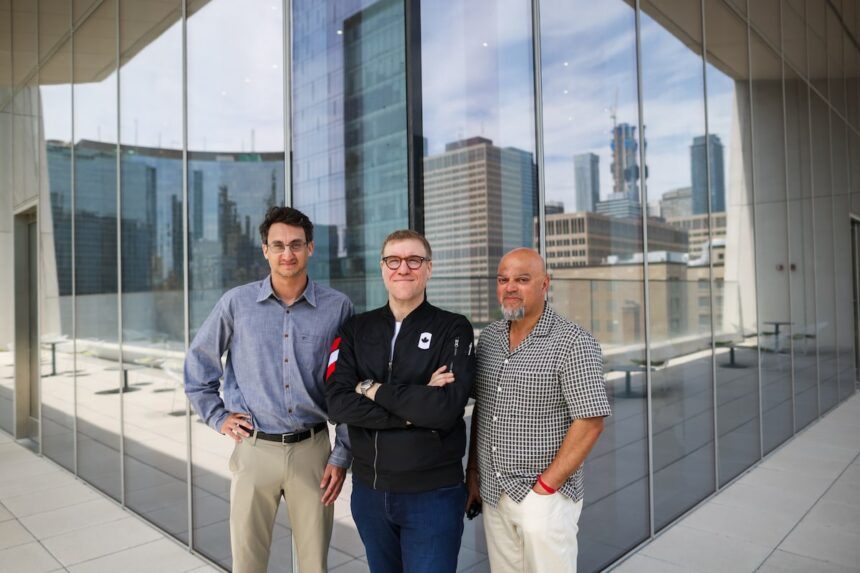In a bold move that could reshape Canada’s artificial intelligence landscape, University of Toronto professor Ajay Agrawal has launched AXL—a venture studio dedicated to transforming AI research into market-ready businesses. The initiative emerges as Canadian tech leaders seek to capitalize on the country’s deep AI expertise while addressing the persistent commercialization gap that has historically seen groundbreaking research benefit foreign companies.
“We’ve been world-class at research, but we’ve been terrible at commercialization,” Agrawal told me during an exclusive interview at AXL’s downtown Toronto headquarters. “The venture studio model allows us to move quickly from concept to company with the resources and expertise startups desperately need.”
Unlike traditional accelerators or incubators, AXL functions as a company-building factory, providing not just funding but also operational support, technical talent, and business development resources. The studio has already secured $25 million in funding, with backing from prominent investors including Thomson Reuters Ventures, RBC Ventures, and Georgian Partners.
What sets AXL apart is its methodology. Rather than waiting for entrepreneurs to pitch ideas, the studio actively identifies commercial opportunities in AI research, builds founding teams around these concepts, and provides substantial support through the critical early stages. This hands-on approach addresses a key challenge in the Canadian innovation ecosystem—the difficulty in translating academic excellence into commercial success.
“The fundamental problem in Canada isn’t the quality of our research or ideas,” explained Jordan Jacobs, co-founder of Vector Institute and an AXL investor. “It’s that we haven’t built the infrastructure to systematically turn those ideas into globally competitive companies.”
Statistics support this observation. While Canada ranks fourth globally in AI research output, it captures just a fraction of the economic value generated from this intellectual property. Between 2017 and 2022, Canadian AI startups raised approximately $8 billion in venture funding—impressive until compared with the $110 billion raised by their American counterparts during the same period.
AXL’s creation comes at a critical moment for Canadian tech. With AI advancing at unprecedented speed and companies like OpenAI and Anthropic securing billions in investment, the window for establishing competitive advantage is narrowing. The venture studio model, successful in other tech hubs, offers a promising alternative to traditional startup development.
The studio has already launched its first company—Palette, an AI-powered platform that helps companies build custom large language models with their proprietary data. Two additional startups are in development, focusing on AI applications in financial services and healthcare.
For Toronto’s tech ecosystem, AXL represents more than just another investment vehicle. It symbolizes a maturing approach to innovation that acknowledges both Canada’s strengths and weaknesses. By providing not just capital but also operational expertise and market connections, the studio addresses the “valley of death” that has claimed many promising Canadian startups.
“We’re creating companies that can scale globally while keeping their center of gravity in Canada,” said Agrawal, who also co-founded the Creative Destruction Lab, another successful innovation hub. “That means jobs, investment, and intellectual property remain here, creating long-term economic benefits.”
As global competition for AI talent and ideas intensifies, initiatives like AXL may determine whether Canada can convert its research excellence into commercial leadership. The stakes couldn’t be higher—with AI projected to add $15.7 trillion to the global economy by 2030, according to PwC analysis.
Will AXL’s model prove the missing link in Canada’s innovation chain? The answer lies not just in how many companies it launches, but in whether those companies can achieve the scale and impact that has often eluded Canadian startups. What’s certain is that the traditional approach hasn’t delivered the results Canada needs to maintain its position in the AI revolution.
For more insights on Canadian innovation and business trends, visit CO24 Business or check out our latest technology coverage at CO24 Breaking News.










